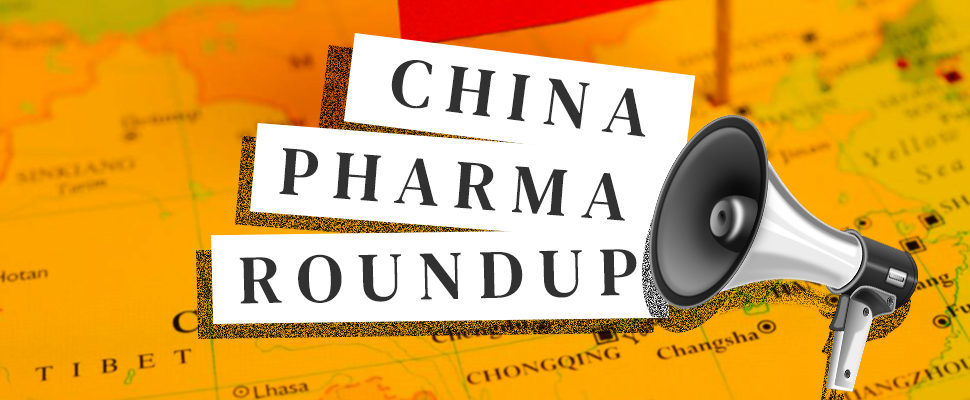A roundup of some of the biggest stories coming out of China’s pharma industry, including the new drugs added to the country’s national health insurance with AstraZeneca’s breast cancer blockbuster, Enhertu, among them; the launch of Novo’s Wegovy in China; Eli Lilly’s obesity partnership with Hong Kong-listed Laekna; Merck’s cancer therapy deal with LaNova; the EC’s nod for BeiGene’s ESCC treatment, and the layoffs at Johnson & Johnson and Merck China.
AstraZeneca’s Enhertu breast cancer drug added to China’s state insurance list (Reuters)
China expands health insurance coverage with 91 new drugs, breakthrough treatments (South China Morning Post)
China has added dozens of new drugs to its health insurance reimbursement list, signalling support for innovative treatments while keeping a tight control on spending.
The National Healthcare Security Administration on Thursday pre-approved 91 medicines, taking the total to 3,159. Meanwhile, 43 drugs that have with better alternatives or that are no longer manufactured were ejected.
Novo Nordisk launches obesity drug Wegovy in China (Reuters)
China-based biotech Laekna teams up with Lilly to develop muscle preserving obesity drug (Reuters)
Merck signs up to $3.3 billion cancer drug deal with China-based LaNova (Reuters)
Zai Lab and Pfizer to commercialise XACDURO in China (Pharmaceutical Technology)
Zai Lab and Pfizer have entered a strategic collaboration to commercialise XACDURO (sulbactam-durlobactam), a new antibacterial drug, in mainland China.
The partnership will utilise Pfizer’s commercial infrastructure in the region to expedite patient access to the therapy. It will operate until November 2028 unless prematurely concluded or extended.
BeiGene’s PD-1 drug approved in EU for first-line oesophageal cancer treatment (Pharmaceutical Technology)
The European Commission has approved BeiGene’s PD-1 inhibitor Tevimbra (tislelizumab) in combination with chemotherapy as a first-line treatment for oesophageal squamous cell carcinoma (ESCC) and gastric or gastroesophageal junction (G/GEJ) adenocarcinoma.
This approval expands Tevimbra’s indication in the European Union (EU), where it was previously approved for treating advanced or metastatic ESCC after chemotherapy in 2023. The monoclonal antibody is also approved to treat several non-small cell lung cancer (NSCLC) indications covering both the first- and second-line settings.
Kingworld-Longde Life and Health Industrial Park opens in China (BioSpectrum Asia)
Kingworld Medicines Group has announced that the Group’s Kingworld- Longde Life and Health Industrial Park in Bao’an Technology City, Longgang District, Shenzhen, has officially commenced operations.
The opening ceremony, investment promotion conference, and investor tour were successfully held, marking a new chapter in the Group’s 30-year journey in the healthcare industry and establishing a national-level pharmaceutical industry incubation and investment base for the Greater Bay Area. On the same day, Kingworld and Foci jointly launched their new product “Foci Kingworld An Gong Niu Huang Wan.”
Novotech and Biostar establish strategic partnership following Biostar’s HKEX listing (BioSpectrum Asia)
Novotech, the global full-service clinical Contract Research Organisation (CRO) that partners with biotech companies to accelerate the development of advanced and novel therapeutics at every phase, has announced a long-term strategic partnership with Beijing Biostar Pharmaceuticals Co. This collaboration strengthens the commitment of both companies to advance clinical research, leveraging Novotech’s expertise and technical platforms to support Biostar’s clinical development plans.
Biostar, a leader in synthetic biology and oncology development in China, recently marked a significant milestone with its successful listing on the Hong Kong Stock Exchange, symbolising a new phase of growth.
J&J, Merck Cut Jobs in China as Local Competition Takes Toll (Bloomberg)
Johnson & Johnson and Merck & Co. are cutting jobs in China, as they face growing competition from domestic rivals resulting from Beijing’s campaign to drive down medical costs.
Both US drug giants have laid off employees in China in recent days, according to people familiar with the matter who asked not to be identified discussing internal matters. The J&J cuts mainly impacted a division that sells products used in surgery, while Merck scaled back in its diabetes unit, the people said.
BeiGene proposes new name, reaffirming oncology mission (European Pharmaceutical Review)
BeiGene Ltd is planning to change its company’s name to BeOne Medicines Ltd. The oncology organisation stated that its new name and logo illustrates its “focus on coming together against cancer”.
Within the new logo design, “Be” represents being disease free, with “One” underlining the company’s shared mission to overcome the disease, according to BeiGene.



